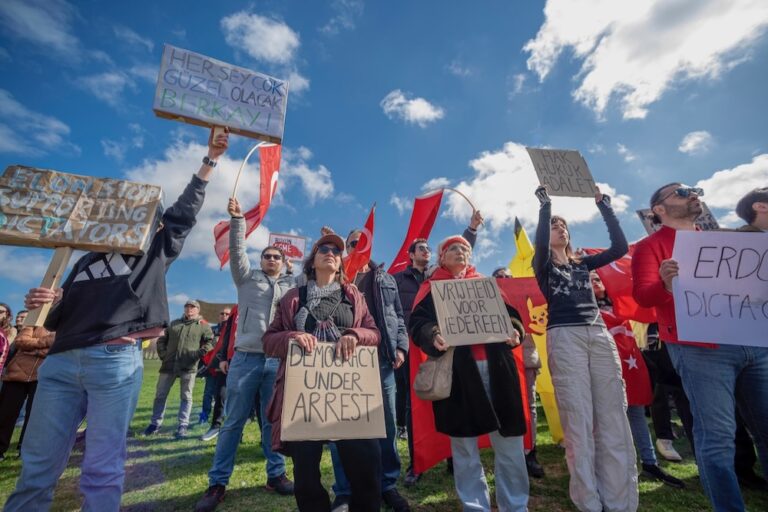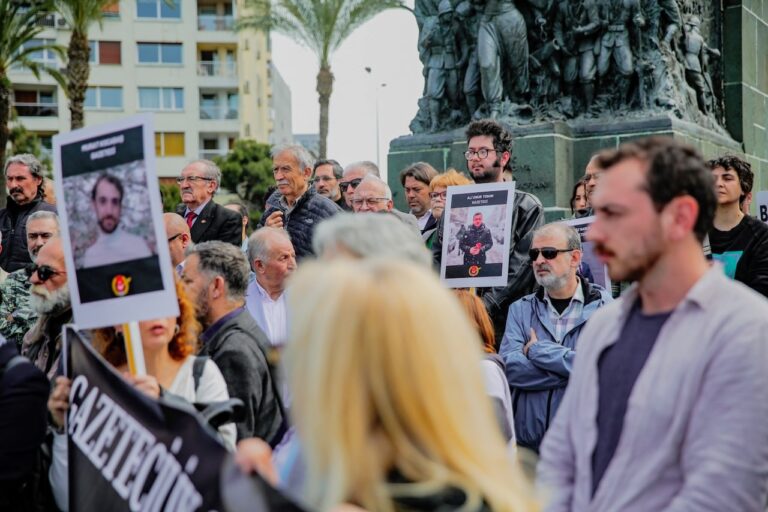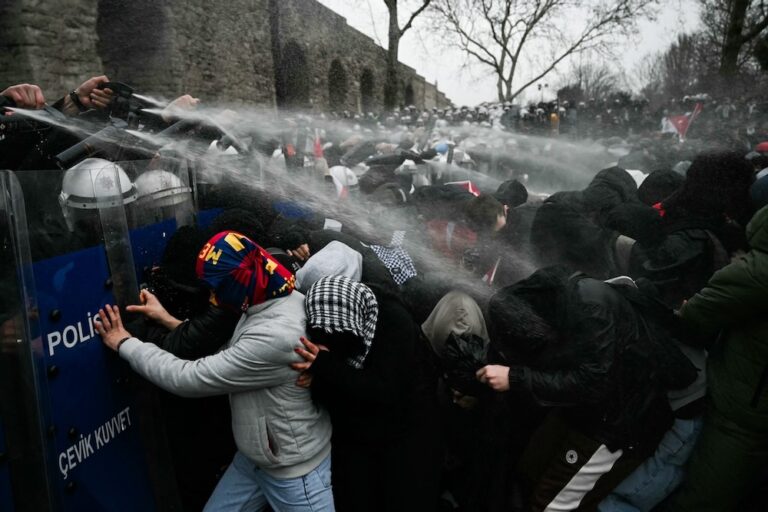Turkish media reported last week that prosecutors were seeking 26 to 52 years behind bars for daily Taraf journalist Mehmet Baransu and Managing Editor Murat Sevki Coban for publishing classified documents from a 2004 National Security Council meeting.
The International Press Institute (IPI) has expressed concern over recent developments in Turkey in which journalists were targeted with excessive prison sentences and the prime minister urged grieving families to sue his media critics.
Turkish media reported last week that prosecutors were seeking 26 to 52 years behind bars for daily Taraf journalist Mehmet Baransu and Managing Editor Murat Sevki Coban for publishing classified documents from a 2004 National Security Council meeting. Baransu in a Nov. 28, 2013 article said the documents proved the existence of a government plan to target faith-based social movements.
Hurriyet reported that the two were charged with “providing documents related to the security of the state,” “publishing information that must remain confidential due to the state’s security or political interests in domestic or foreign policies”, and “publishing a document or information related to the activities or duties of the National Intelligence Organization”.
IPI and its affiliate, the South East Europe Media Organisation (SEEMO), criticised the case and called on prosecutors to drop the charges.
“Not only are the sentences being sought excessive, but these journalists appear to have been charged for reporting information that is within the public interest,” IPI Senior Press Freedom Adviser Steven M. Ellis said.
The investigation against the two journalists, which reportedly originally targeted them on allegations of espionage, followed a public accusation by Prime Minister Recep Tayyip Erdogan that Baransu committed “treason”.
The prime minister in recent weeks has made similar verbal attacks on Hurriyet columnists Yilmaz Ozdil and Melis Alphan, and on Posta columnist Yazgulu Aldogan, for controversial remarks they made about the government’s safety record and its response to this month’s Soma mining disaster. Erdogan, in remarks last week, called for the journalists to be fired and he urged victims’ families to sue them, which a number of families reportedly now have done.
Critics argue that the explosion that led to the deaths of 301 miners was the result of lax efforts by the AKP government to ensure workers’ safety. But government supporters claim that the journalists’ remarks in the course of making that argument were insensitive and constituted “hate speech” implying that victims who supported the AKP deserved their fate.
The Turkish Journalists Association (TGC) this week condemned the prime minister’s comments , saying that it took “the threatening and insulting remarks of Prime Minister Erdogan against the columnist that he does not like as an attack on the freedom of information and press”.
IPI and SEEMO echoed that criticism.
“It is disappointing, but not uncommon, for the prime minister to attack journalists who question his record,” Ellis said. “However, his appeal to grieving families to use the legal system to silence his critics for him represents a troubling new front in his war on independent media.”
In another disconcerting development, Cumhuriyet this week reported that transcripts of wiretapped conversations allegedly showed former Environment Minister Erdogan Bayraktar using his position to pressure real estate developers and construction companies to steer advertising toward pro-government media outlets in order to “nurture” them.


